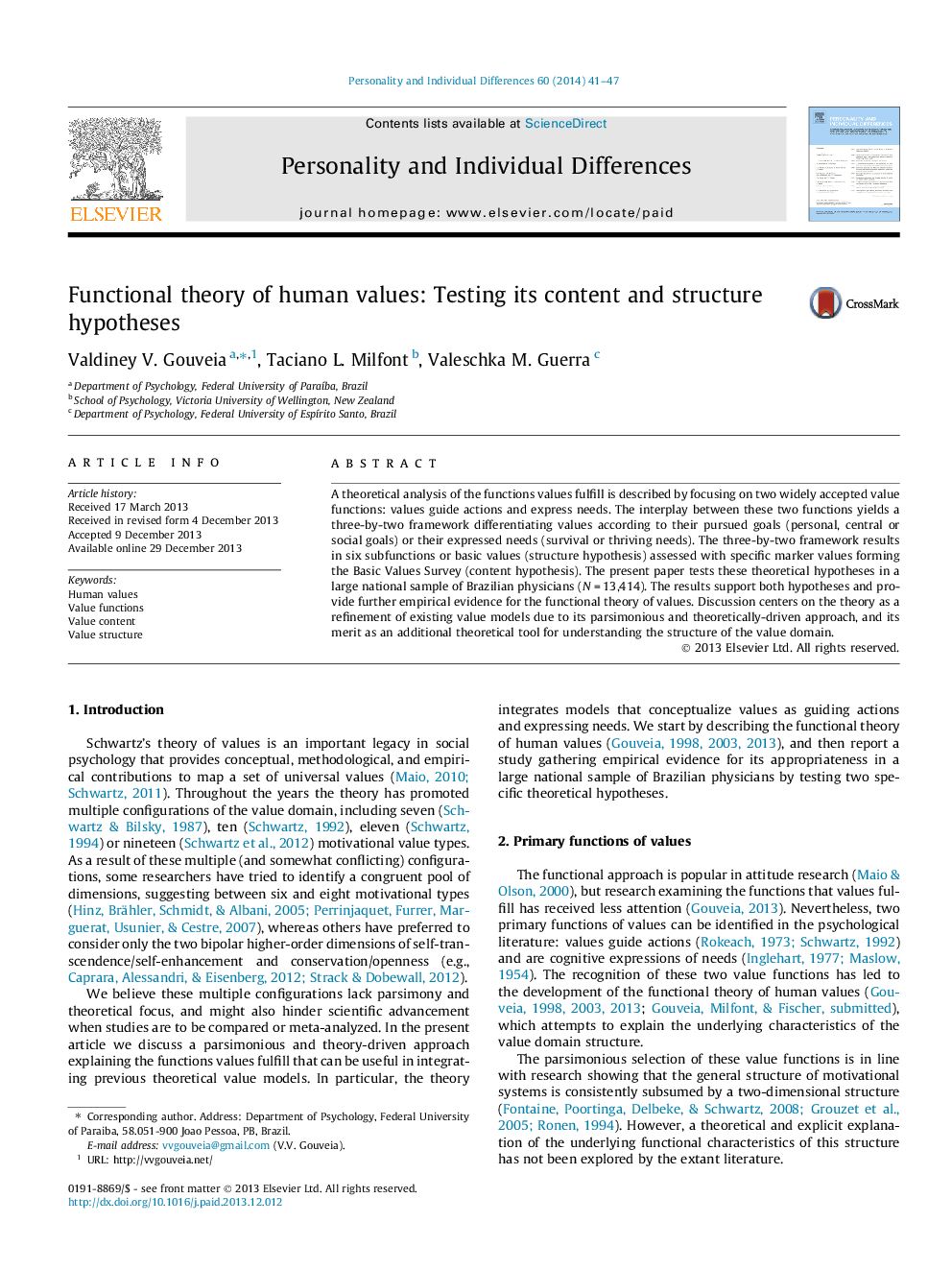| Article ID | Journal | Published Year | Pages | File Type |
|---|---|---|---|---|
| 890516 | Personality and Individual Differences | 2014 | 7 Pages |
•The functional theory of values is tested in a sample of Brazilian physicians.•When guiding human actions, values may be social, central, or personal.•When expressing human needs, values may be materialistic or humanitarian.•These functional dimensions are combined and produce six subfunctions of values.•Structure and content hypotheses were supported by the findings.
A theoretical analysis of the functions values fulfill is described by focusing on two widely accepted value functions: values guide actions and express needs. The interplay between these two functions yields a three-by-two framework differentiating values according to their pursued goals (personal, central or social goals) or their expressed needs (survival or thriving needs). The three-by-two framework results in six subfunctions or basic values (structure hypothesis) assessed with specific marker values forming the Basic Values Survey (content hypothesis). The present paper tests these theoretical hypotheses in a large national sample of Brazilian physicians (N = 13,414). The results support both hypotheses and provide further empirical evidence for the functional theory of values. Discussion centers on the theory as a refinement of existing value models due to its parsimonious and theoretically-driven approach, and its merit as an additional theoretical tool for understanding the structure of the value domain.
